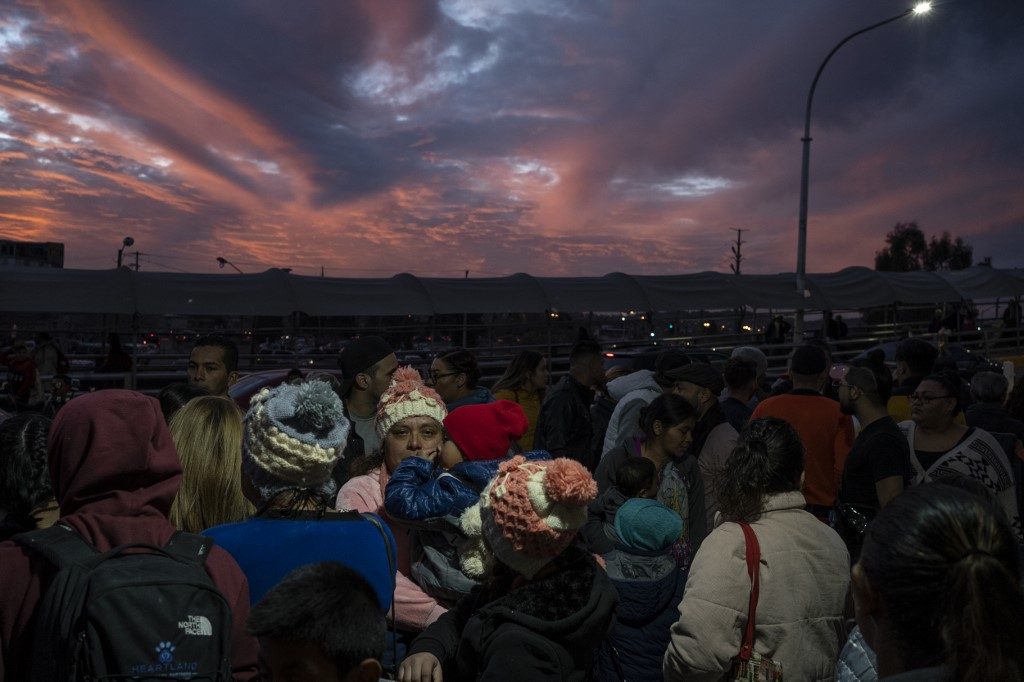SUMMARY
This is AI generated summarization, which may have errors. For context, always refer to the full article.

LOS ANGELES, USA – A US court Friday suspended its decision to block a key asylum policy of Donald Trump’s administration which has forced many applicants to wait in Mexico while their claims are processed, allowing border officials to continue enforcing the White House directive.
The policy – known as “Remain in Mexico” and part of the US president’s signature crackdown on migration – has been used to send tens of thousands of asylum seekers from Central America back to Mexico, but was placed on hold by the Ninth Circuit Court of Appeals in San Francisco on Friday.
The court initially ruled the policy “is invalid in its entirety” under US law concerning migrant rights and UN refugee protocols, and should be blocked “in its entirety.”
But just hours later, the court unanimously voted to stay its order, US media reported, with the 3-judge panel telling the government and the plaintiffs to file written arguments by Monday and Tuesday next week.
After welcoming the court’s initial ruling the American Civil Liberties Union – one of the groups that challenged the government in court – said the suspension was a “temporary step.”
“We will continue working to permanently end this unspeakably cruel policy,” attorney Judy Rabinovitz said in a statement to US media.
Earlier, the White House had blasted the block, warning it could “flood the nation’s immigration system” and “present unchecked coronavirus entry risk.” (READ: Lost and rejected, U.S. asylum seekers find refuge in Mexico shelter)
The San Francisco court had allowed the policy to go ahead last year, pending the appeal, overruling a district judge who had ruled against the measure.
The district judge had heard evidence that migrants returned to Mexico under the policy faced discrimination, physical violence, sexual assault, corruption and lack of food and shelter.
More than 60,000 people have been returned to Mexico under the program since it was introduced in January 2019, according to the White House.
“The policy is facially and flatly illegal,” tweeted Harvard Law School constitutional scholar Laurence Tribe.
‘Stopped traffic’
On Friday, February 28, the US Customs and Border Security shut down the Paso Del Norte crossing in southern Texas as news of the court’s block spread on social media.
“CBP stopped traffic at Paso Del Norte bridge at 7:20 pm Friday preventing the ability for a group of migrants to illegally and forcefully surge through the port of entry,” the force tweeted.
The West Texas branch of the CBP added that the crossing – one of the busiest – would remain closed overnight, although no other ports were shut.
Earlier, a Department of Justice spokesman said the Trump administration had “acted faithfully” and slammed the court’s ruling which “highlights the consequences and impropriety of nationwide injunctions.”
The White House said it was “considering all available legal options to seek further review of this decision,” and called the asylum policy “hugely successful.”
The number of detained migrants soared in recent years as hundreds of thousands of people, mostly from Central America, poured into the United States, with many seeking asylum.
A crackdown including the “Remain in Mexico” policy has seen border apprehensions plunge in recent months.
The figure stood at fewer than 37,000 last month, from more than 58,000 a year earlier.
But Refugee International warned Friday that the asylum policy “means the difference between life and death” for migrants “cruelly pushed into harm and deprivation in Mexico.”
In a separate ruling Friday, the same appeals court also struck down the Trump policy of blocking anyone entering illegally without going through an official port of entry from applying for asylum.
“Together, the two decisions represent a significant setback for the Trump administration’s efforts to restrict asylum applications,” said Stephen Yale-Loehr, a Cornell Law School professor.
“This issue is surely headed to the Supreme Court,” he added. – Rappler.com
Add a comment
How does this make you feel?
There are no comments yet. Add your comment to start the conversation.